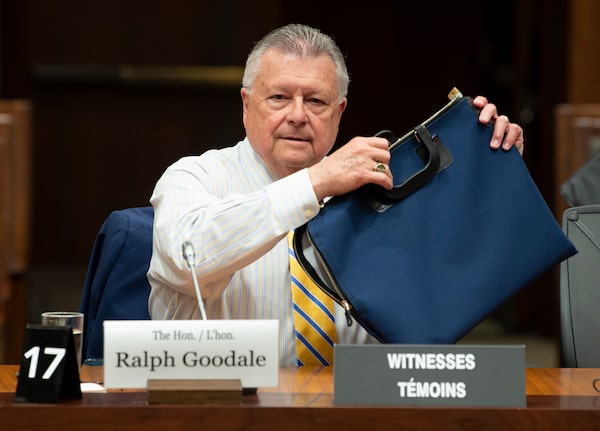
A spokesman for Public Safety Minister Ralph Goodale said the government is reviewing the decision.Adrian Wyld/The Canadian Press
B.C.’s Court of Appeal has upheld a lower court ruling that struck down Canada’s solitary confinement law, in a decision advocates say will bolster their position if they end up challenging new legislation related to the practice.
In a unanimous decision released Monday, B.C.’s Court of Appeal found that laws allowing for “prolonged and indefinite use of administrative segregation” violate inmates’ Charter rights and offend “the fundamental norms of a free and democratic society.”
The decision followed the federal government’s appeal of a January, 2018, B.C. Supreme Court ruling that found the federal solitary confinement policy was unconstitutional.
The federal government now has 30 days to decide whether to seek leave to appeal to the Supreme Court of Canada.
Scott Bardsley, a spokesman for Public Safety Minister Ralph Goodale, said the government is reviewing the decision.
The B.C. Court of Appeal decision is the latest development in a legal battle against solitary confinement that is playing out in both Ontario and B.C. amid controversial steps by the government to reform the practice.
While the B.C. court case was still under way, Ottawa started working on new legislation to reform solitary confinement. That legislation, Bill C-83, passed into law Friday.
The new bill ends the practice of administrative and disciplinary segregation in all federal correctional institutions and is backed by $448-million in new funding for mental-health-care improvements, Mr. Bardsley said in a statement.
In “structured intervention units” (SIUs) provided for in the bill, inmates will be entitled to at least four hours out of their cell every day and at least two hours daily of meaningful human contact with staff, visitors, elders, chaplains or other compatible inmates, Mr. Bardsley said, adding that placement in the units is subject to "binding external review and robust internal review.”
But while the new legislation changes the name of the practice, it doesn’t put a legislated hard cap on how long inmates can be kept in isolation, says Josh Paterson, executive director of the B.C. Civil Liberties Association.
“Guards can still make decisions to isolate people who are inside those units. When they do, as far as we are concerned, that constitutional clock starts ticking,” Mr. Paterson said at a news conference in Vancouver Monday.
“It may require further litigation to challenge that [new law], but we are going to have a solid foundation in both of these provinces [Ontario and B.C.] if and when it comes to that,” Mr. Paterson said.
The B.C. case was brought by the BCCLA and the John Howard Society of Canada.
BCCLA litigation director Grace Pastine, speaking at the same news conference, said her organization is “deeply concerned” by the new legislation. “We are at this point considering all possible legal avenues, and we remain deeply committed to the rights of prisoners in federal prisons and ensuring no one is subjected to this type of cruel practice,” she said.
In April, Ontario’s top court ruled that placing inmates in solitary confinement for more than 15 days constitutes cruel and unusual punishment, rejecting Correctional Service Canada’s long-standing practice of isolating prisoners for weeks, months and even years at a time.
The federal government has appealed that Ontario decision, Mr. Paterson noted.
“It doesn’t feel to us through the government’s litigation practices as though the federal government has totally gotten the message that these practices need to change," Mr. Paterson said.
The Ontario and B.C. court decisions are part of a lengthy legal push to curtail solitary confinement prompted by the deaths of Ashley Smith, Edward Snowshoe and other prisoners. The Globe and Mail has reported extensively on the prevalence and effects of solitary confinement, beginning with a 2014 investigation into the death of Mr. Snowshoe, who took his own life after 162 consecutive days in segregation.
 Wendy Stueck
Wendy Stueck